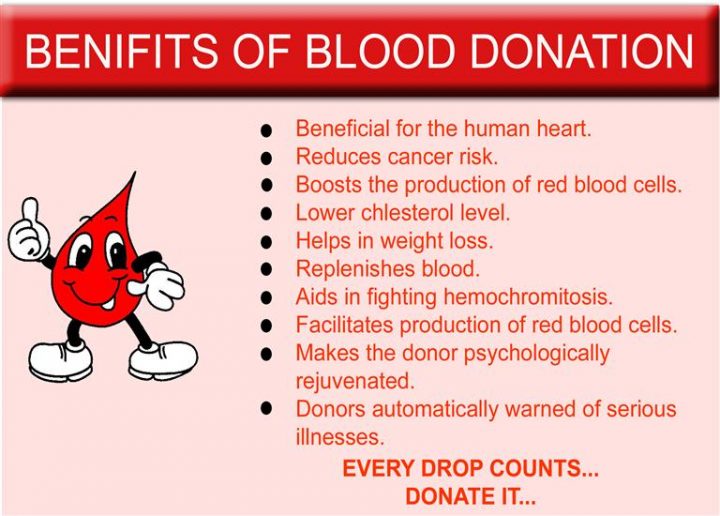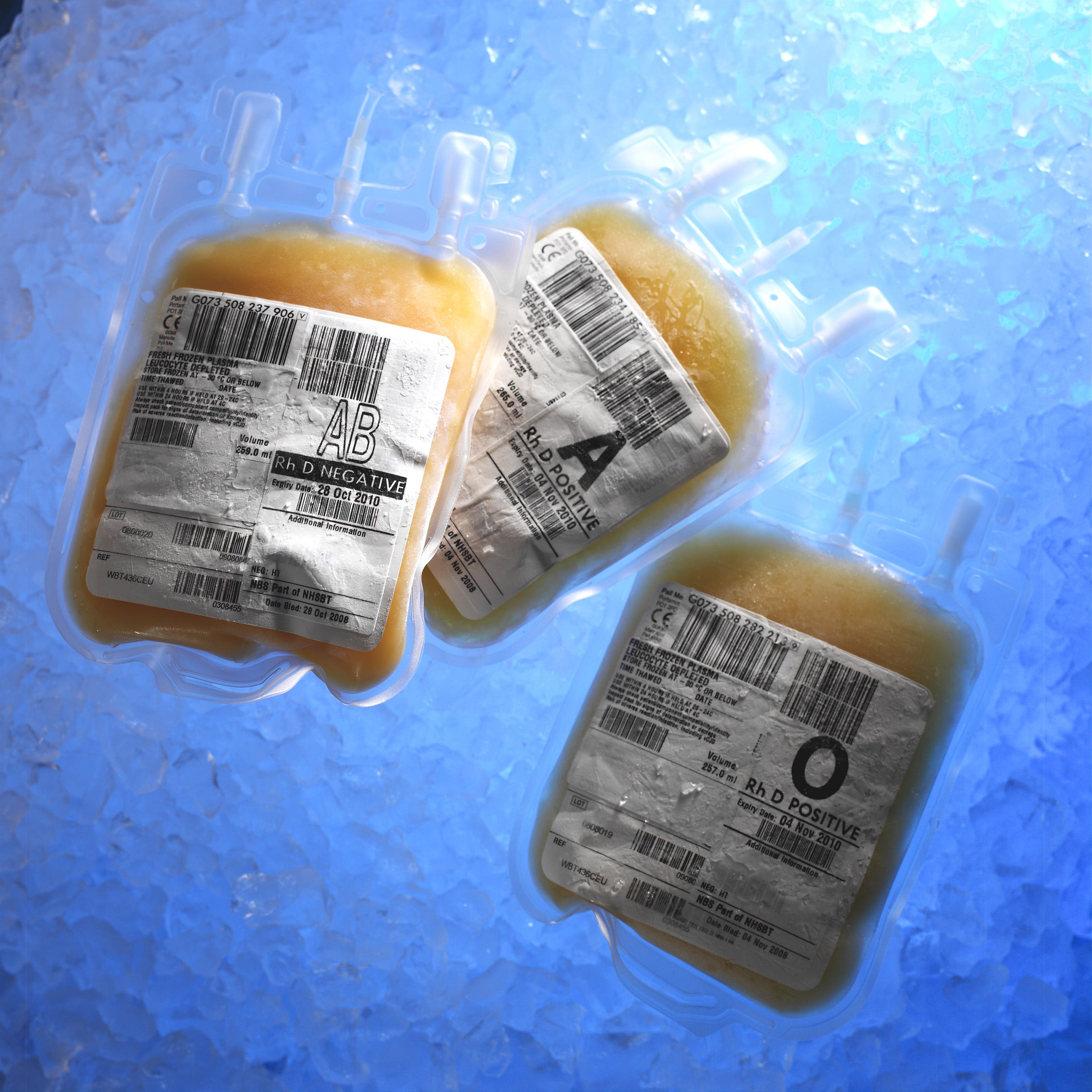Adverse effects
- Dizziness or lightheadedness. Some people experience dizziness or lightheadedness after donating blood. This is because...
- Bleeding. After a blood donation is complete, an attendant will place a bandage over the area where the needle was...
- Bruising and soreness. Some people experience bruising around the insertion site. This happens when the tissue...
What are some 'not to do' after donating blood?
What Happens to Blood After Donation Step One. After your unit of blood is collected - along with several small vials used for testing - your blood donation... Step Two. Whole blood donations are separated into two essential components, red cells and plasma. Step Three. Your blood is …
What conditions disqualify you from donating blood?
Jan 19, 2022 · After your blood is processed and tested, it is labeled and goes into storage in a refrigerator, agitator or freezer: Plasma can be stored in a freezer for up to a year. Platelets are good at room temperature in agitators for up to five days. Red blood cells can be kept in a refrigerator for 42 days.
What do you need to eat after donating blood?
Aug 09, 2019 · Short-term impact on the body when donating blood In the days after a donation, red cells are replaced at an astounding rate. Bone marrow has received the message that overall oxygen levels are lower (due to the loss of red cells) and has increased the output of stem cells, which eventually become either red cells, white cells, or platelets.
Are there any side effects after donating blood?
Jul 25, 2017 · This process takes about fifteen to thirty minutes to complete. From there the red blood cells are temporarily placed into a walk-in freezer and stored between 1-6 degrees Celsius, while the staff awaits the test results for each donation. Two P’s in a Pod

Is blood cleaned after donation?
The donations are sent to the manufacturing area, while each donor's blood samples are sent to be tested. In manufacturing the white blood cells are filtered out of each donation. Each blood donation is broken down into its separate component parts using a centrifuge.
How much donated blood is wasted?
More than 200 000 units of whole blood had to be thrown away after Americans donated 500 000 extra units in September and October. Donated blood is discarded if it remains unused after 42 days.
What is the rarest blood type?
type ABIn the U.S., the blood type AB, Rh negative is considered the rarest, while O positive is most common.May 18, 2020
What blood is needed the most?
Type O positive bloodType O positive blood is given to patients more than any other blood type, which is why it's considered the most needed blood type. 38% of the population has O positive blood, making it the most common blood type.
Where do blood transfusions happen?
Blood transfusions typically happen in hospitals, doctors’ offices and clinics. When a person needs one, their doctor will find out their blood type so the person receives the right kind of blood. When it’s ready, a nurse or other medical professional will insert a needle into a vein in the hand or arm.
Why do people need blood transfusions?
There are many reasons why a person may need a blood transfusion. In the emergency room, a trauma patient may have lost a lot of blood and need an urgent replacement. This can also happen during surgery when a patient loses more blood than usual.
How long can blood be stored?
After your blood is processed and tested, it goes into storage in a refrigerator, agitator or freezer: 1 Plasma can be stored in a freezer for a year. 2 Platelets are good for up to five days. 3 Red blood cells can be kept in a refrigerator for 42 days.
What is the first step in the donation process?
Donating blood . Donating blood is the first step in the donation process. You may already be familiar with it. A medical professional takes your medical history and conducts a physical of sorts. They may take your blood pressure, pulse and temperature.
How long is plasma good for?
Plasma can be stored in a freezer for a year. Platelets are good for up to five days. Red blood cells can be kept in a refrigerator for 42 days. Some blood is typically stored at hospitals for emergencies. But it is available for 24/7-delivery from the organizations, like blood banks, that store it.
Why do people donate blood?
This may be partly because donating blood helps blood flow, giving it a lower viscosity (resistance) and thus making it less damaging to blood vessels. There are other ways that donating blood impacts your heart as well. Blood donation also helps regulate iron levels in the body.
What is blood donation?
Blood donation is a lifesaving gift and a beneficial procedure, for both recipient and donor. What happens to your body when you donate blood?
How to prepare for blood donation?
To minimize any adverse reactions, it is important to prepare for your blood donation by eating an iron-rich meal and drinking plenty of fluids. You will also want to replace fluids immediately after donating, and to keep the body well-nourished. As levels return to normal, any discomfort subsides. Long-term benefits to your body ...
Why is blood donation important?
Blood donation also helps regulate iron levels in the body. Too much iron can be damaging to blood vessels, and a regular decrease of iron-rich blood and subsequent replenishment due to blood donation can lead to a more beneficial lower iron level. Men tend to store more iron in their bodies than women, which is why iron deficiency is rare in men.
Who is Paul Ramey?
Paul Ramey is a OneBlood Graphic Designer, as well as a published author ( Edgar Wilde and the Lost Grimoire) and music recording artist ( Nothing On Earth ). Paul is very proud to be part of OneBlood’s lifesaving team.
Is blood donation good for you?
Long-term benefits to your body when you donate blood. Studies reveal many possible benefits of regular blood donation. According to the American Journal of Epidemiology, 88% of blood donors are less likely to suffer a heart attack.
How long can plasma be frozen?
The plasma will be frozen and placed in a walk-in freezer where it is stored at below -18 degrees Celsius. Plasma can be frozen and stored for up to a year, but once thawed it must be transfused within twenty four hours.
What is a separate lab?
While the components staff are processing and storing all of the blood product, a separate lab is simultaneously conducting testing to determine if the blood product can be cleared for use by hospitals or clinics. The labs conduct rigorous and thorough tests to determine the safety of each and every donation we receive.

Popular Posts:
- 1. where can i donate used college textbooks
- 2. where can i donate books on long island
- 3. what clothes are ok to donate
- 4. how do i donate my sperm
- 5. how much money can i get if i donate plasma
- 6. where to donate influence voucher nevereinter
- 7. where to donate clothes san diego
- 8. where can i donate used cloth diapers and covers
- 9. where to donate clean syringes
- 10. how much money does the nra donate